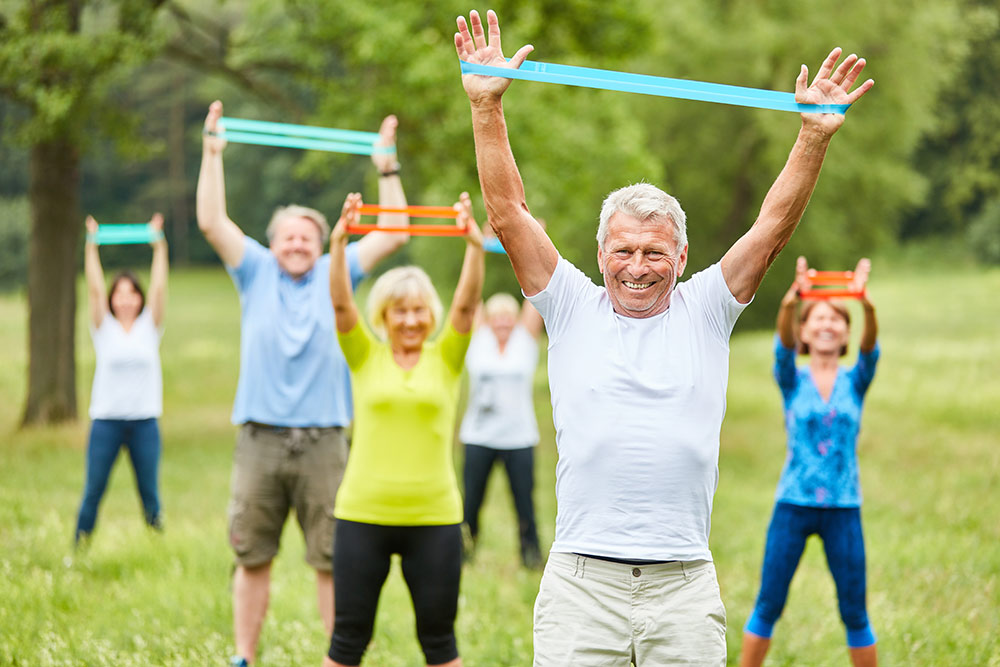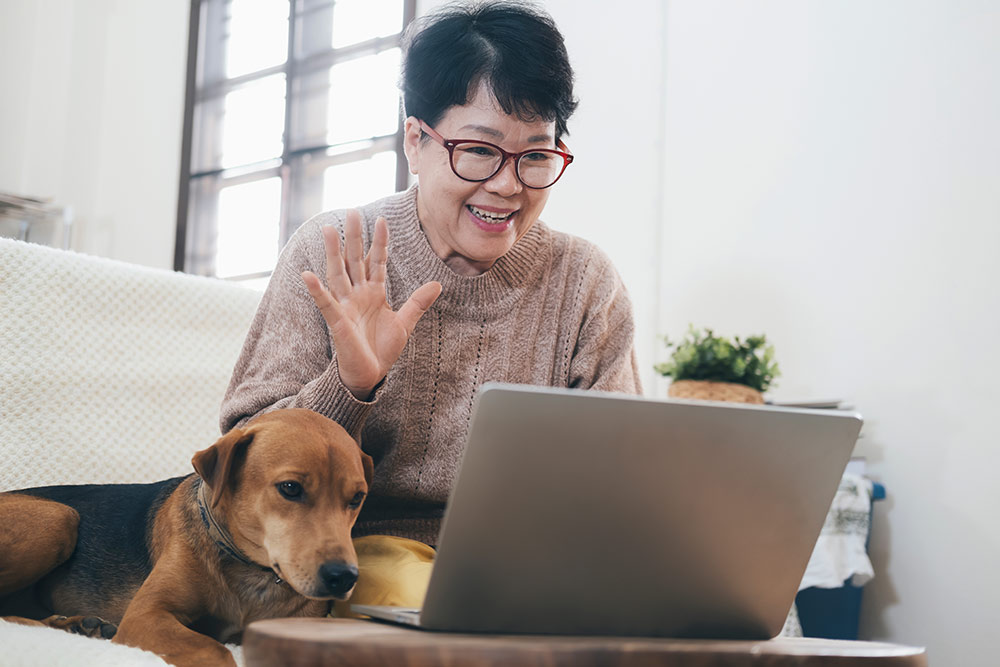As the pandemic unfolds, health authorities have been quick to implement home quarantine, isolation, and social distancing to reduce the spread of infection.
The increased risk of older adults to the disease has highlighted many news and safety advisories. Because of this, seniors were strongly recommended to practice the above safety strategies to keep their health intact.
However, studies suggest that prolonged social distancing, especially home quarantine, can leave seniors more vulnerable than they already are. Some of its negative effects include:
- Feelings of loneliness and isolation
- Scared and alone
- Depression
- Anxiousness or anxiety disorder
- Cognitive decline
- Deteriorating cardiovascular health
- Developing mental health problems
Although elderly social distancing poses many mental health risks, it is still the best form of precaution to avoid spreading the disease.
To cope, experts encourage seniors to stay connected and do activities that can help them during social distancing and stay at home protocols. Here are helpful ways on how you can do it.
1. Pick up the Phone
With social gatherings put on hold, the only way you can keep your social well-being in shape without using intricate technology is through a phone call.
Pick up the phone and call your grandkids, relatives, and close friends. Stay up-to-date with each other’s lives by scheduling a regular call session with them.
You do not need any special occasion to talk to your loved ones. You also do not need to talk about important topics. Just have a friendly leisure chat about how both of your days went.
2. Do Video Calls
If you are a senior with a penchant for technology, you can opt to do video conferences with your loved ones instead of a phone call.
Video calls allow people to have real-time, face to face conversations that can feel as good as actual conversations.
So, capitalize on the technology available by arranging video calls with your relatives and senior friends.
You can send out video call invites to your community friends or host family meetings online where you can do video calls with them all at the same time.
There are plenty of apps available for video conferences, such as Facebook, Skype, Zoom, and WhatsApp. You can access them all for free on either a laptop, tablet, or phone.
This is especially helpful for older adults quarantined in their senior community facilities. With visitations still on hold, you can instead schedule daily video calls with your family members.
You can have a staff or caregiver help you set-up your devices and teach you how to operate them.

3. Physically Distanced Exercise
Elderly social distancing had halted many social activities for older adults, including exercise. It is best to continue simple workout routines from your home to keep your health in its best shape.
Keep it from getting dull or lonely by inviting close friends to exercise with you. Do this safely by:
- Call a friend or a family member and have them join you in your morning outdoor walks. Make sure to wear masks, bring hand sanitizer, and always maintain six feet of distance with each other and other people.
- Arrange daily outdoor exercises with your friendly neighbor. Workout together in your own backyards or front lawn while having a friendly chit chat.
- Organize synchronous family exercises through video calls.
- Participate in live workout sessions offered online by professional instructors.
- Use exercise equipment that allows you to connect and exercise with someone online (e.g., Peloton bike)
4. Safe Outdoor Activities
The challenge in social distancing is not just the absence of physical contact, but the ability to go outside and do the things that you love. May it be as simple as grocery shopping or running some errands.
So, if you are feeling some quarantine blues lately, then you can do safe outdoor activities to get your mind off stressful things.
You can visit the dog park and interact, from afar, with fur parents and their fur babies out there. You can sit by the bench and admire the beauty of the outdoors—safely with your mask on.
You can also sit by the front lawn and engage in conversation with friendly neighbors and passersby. Or participate in group activities at a safe distance, such as balcony exercise.
5. Express Yourself
Despite being quarantined, there are still many ways to cultivate your hobby, express yourself, and share your passion to other people
The virtual world offers many platforms from which you can meet like-minded individuals with the same passion. Here are some activities that you can participate in without risking your health.
- Join online art communities to share your art and discuss art-related things.
- Participate in online book clubs and their discussions.
- Watch a short film and join others in their online dialogue about it.
- Enroll in online cooking or baking classes.
- Join or host virtual get together for plant and gardening enthusiasts.
- Be a virtual mentor to aspiring professionals in your field.
- Volunteer online (e.g., tutor kids or be a virtual companion)
Exploring and doing the things you love leaves no room for loneliness. You can still pursue your passion and share it with the world, quarantined or not.
Remember that it does not have to be something big and significant. It can be as simple as playing an online game with fellow seniors, as long as it makes you happy, then go for it.
6. Care for Your Mental Health
Home quarantine and elderly social distancing bring about a different kind of mental stress in the long run. You are allowed to feel overwhelmed and experience bouts of fear and anxiousness.
But do not let it run its course unattended. Be your own advocate, and do something about it. You can:
- Call a loved one or a trusted confidante and unburden your negative thoughts and feelings to them.
- Schedule an online appointment with a psychologist or psychiatrist.
- Join online support groups
- Limit your social media and news intake each day.
- Start an online journal and write your thoughts.
- Meditate and do things that can take you out of your own headspace.



